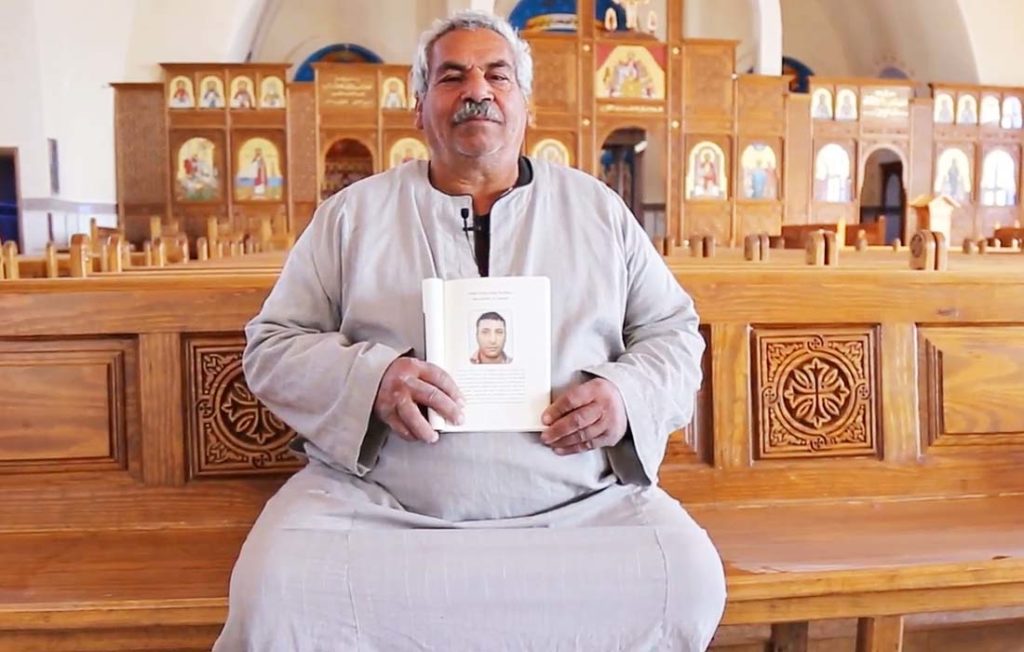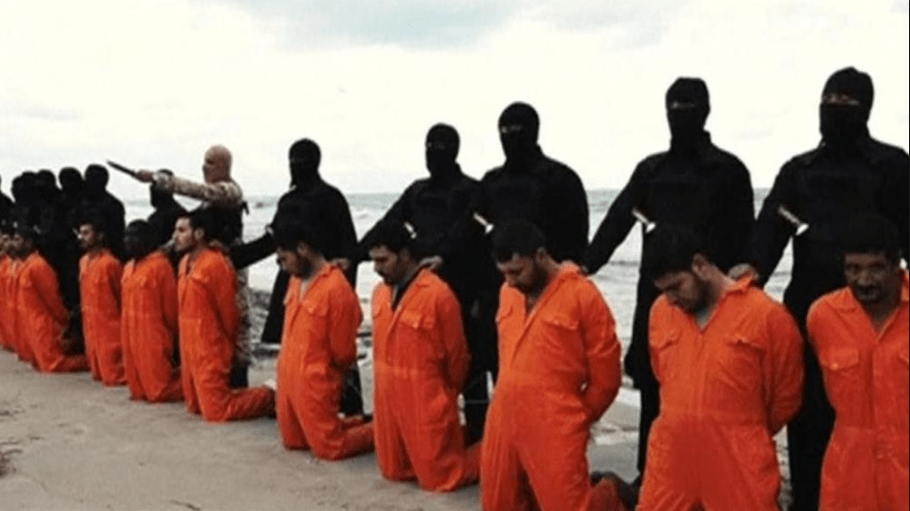Egypt’s martyrs strengthen faith of Coptic community
Families speak of their pride and happiness in new book
Four years after the beheading of 20 Coptic Christians on a beach in Libya by Islamic State militants, a book has been published about the victims which shows a completely different view of martyrdom, according to a report in World Watch Monitor.
The 20 Copts plus one Christian from Ghana, all daily labourers in Libya, were abducted by armed militants who released a graphic video depicting the mass beheading of their captives on February 15, 2015, titled: “A message signed with blood to the nation of the Cross”. Video subtitles described the Christians as “people of the Cross, followers of the hostile Egyptian Church”. The horrific incident made headlines around the world.
Now, German writer Martin Mosebach has published a book entitled The 21: A Journey into the Land of Coptic Martyrs, which is based on interviews with the families of the victims as well as their bishops and in their monasteries in Upper Egypt.
“They were like priests who had given their lives through this act of faith.” – Martin Mosebach
What he found was “a completely different point of view of martyrdom”, he told the Catholic news site The Tablet. “No lamentation, no mourning, no pity, but, instead, pride and happiness. This was not seen as an injustice or an incident that should not have happened. On the contrary, mothers, widows, brothers, and fathers all spoke the same language,” he said.
“Their paintings and photographs showed the killed ones with royal crowns on their heads. It was all completely liturgical. They were like priests who had given their lives through this act of faith. There was really the presence of the supernatural in the lives of these very simple people who were not mystics at all. These were people with very simple theologies, but it was a real theology.”
In October 2017, Libya officially confirmed it had found the bodies of the beheaded Christians. In May this year, the Egyptian Coptic families of the 20 men received their loved ones’ remains, which were buried in the new Church of the Martyrs of Faith and Homeland, built in their remembrance in the village of Al-Our. The body of the Ghanaian Christian was handed to the Ghanaian Embassy in Libya.
In October last year Libya captured a suspected perpetrator in the beheading of the 21.
“When I saw he died with the name of Jesus on his lips, I was very proud. I rejoiced!” – Malak
A report by Open Doors quotes Malak, the father of one of the martyrs, who looks beyond the senseless killings and shares an eternal perspective. His words reflect hope, reminding us of second-century Christian author Tertullian’s famous observation: “The blood of the martyrs is the seed of the Church.”

Malak is proud of his son who was martyred four years ago. Open Doors
“We only knew martyrdom from films, but martyrdom was reintroduced and it strengthened our faith because these people, these 21 martyrs, lived among us,” he said.
“To be honest, I was happy when I saw my son in the video,” he told World Watch Monitor, “because then I knew the place he had gone to. And when I saw he died with the name of Jesus on his lips, I was very proud. I rejoiced!”
Malak said his own faith, as well as the faith of the whole Christian community in Egypt, had grown as a response to the evil carried out four years ago. Indeed, Open Doors partners in Egypt report that the Church is growing as a result of persecution, as increasing numbers of Muslims leave Islam and turn to Christ.
“ISIS thought the killing of our relatives would destroy us. It did not. It revived us.” – wife of Samuel Abraham
In the days and weeks leading up to their deaths, ISIS captors reportedly tortured the men who had travelled to Libya to find work and support their families. Militants attempted to persuade them to deny Jesus in return for their lives. They all refused. In fact, during the barbaric execution, the men repeated the words, “Lord Jesus Christ.”
The wife of 29-year-old martyr Samuel Abraham echoed Malak. Only a week after learning her husband was one of the 21 men, she told Vice News: “ISIS thought the killing of our relatives would destroy us. It did not. It revived us.”
Strengthened by seeing and hearing the faith of their martyred loved ones, family members responded quickly. Last year, a church dedicated to the 21 martyrs opened its doors in Upper Egypt’s Minya province in the tiny agricultural village of al Aour, south of Cairo, the area where 13 of the martyred Egyptians lived.
“At first, it was hard to deal with the fact that our father was martyred, but later we felt comforted by God.” – Fifi Shehata
Although Egyptian President el-Sisi authorised the building of the church and reportedly said the church must be built in honour of the martyrs, construction in an area that is 70 per cent Muslim met resistance. From the start, families were met with protests from Muslim extremists. An angry mob descended on the community’s current church, chanting that they would never allow construction of the new church to begin.
Enter the Egyptian government, which donated the equivalent of more than half a million dollars to the church’s construction. The plot of land was donated by the village. Never before has a Christian church been built in this spot. In Muslim-majority Egypt, where more than more than 230 Coptic Christians have been killed in the last two years, the building of churches is highly restricted.
“I am proud that my father is on the pictures in the church,” Fifi Shehata, the daughter of Maged, said in an interview last year. “It’s a big honour… At first, it was hard to deal with the fact that our father was martyred, but later we felt comforted by God.”
This story is republished from Open Doors and World Watch Monitor, with permission.
Email This Story
Why not send this to a friend?

